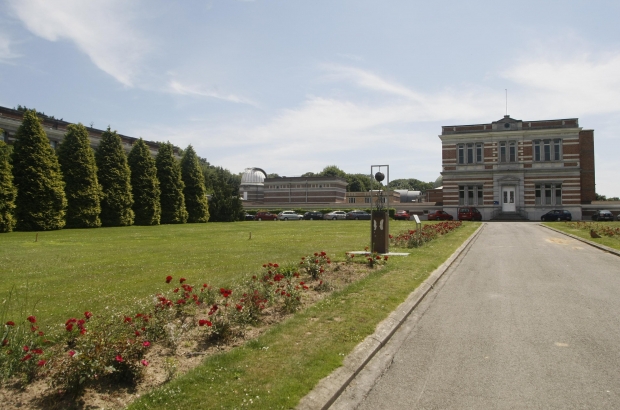- Daily & Weekly newsletters
- Buy & download The Bulletin
- Comment on our articles
New centre for climate research inaugurated in Uccle
A special centre for climate research has just opened its doors in the Brussels municipality of Uccle.
Called the Federal Climate Centre, it is already being described as “one of the most ambitious at European level”, RTL reports.
The new centre will serve as a hub of expertise in climate matters that fosters cooperation between many scientists.
Present for the inauguration was one of them: Swiss explorer Bertrand Piccard, who was the first man to fly around the world in a solar plane.
“I really became aware that the rest of the world was completely in the past, with systems, infrastructure, materials and energy sources that are 120 years old,” he said.
“Here, it's exciting, because the solutions are there and they make economic sense for the citizens and for businesses.”
The building that now houses the Federal Climate Centre once served as the residence of the director of the Royal Meteorological Institute, and the new centre is now run by two women scientists.
“It's still a bit empty, but it will soon become much more lively,” said one of them, Dr Ella Jamsin, whose PhD is in physics.
Joining her is dendroclimatologist Dr Valérie Trouet, who received her Phd in Bioscience Engineering from KULeuven.
Climate research at the federal level already employs around 100 scientists, among them astronomers at the Royal Observatory in Uccle and climatologists at the Princess Elisabeth polar station in Antarctica, for example.
These researchers tend to carry out their work separately, but the first objective of the new climate centre is to better coordinate their research.
“We needed a centre that would bring all this research together and that would be one of the most ambitious at European level,” said Thomas Dermine (PS), the secretary of state for scientific recovery and policy.
“It is no coincidence that we are in Brussels, in the capital of Europe.”
For Dr Jamsin, the aim is also to make the link between researchers and the needs of politicians and companies, in particular when it comes to climate action.
The Belgian government has come up with a budget of €2 million per year for the operation of the climate centre, which is in addition to the €10 million allocated annually to federal scientific climate research.
“We want to take Belgian climate research to the next level,” said Dermine, who was also present for the inauguration of the centre.
All climate research by various scientific institutions such as the RMI, Sciensano and the Royal Observatory will be pooled at the new centre and better coordinated, in the hope of increasing the impact of the research.
The Climate Centre will also collaborate with universities and research centres around global climate challenges, striving for a higher level of research. Domestic and foreign policymakers can also call on the centre to make more targeted climate-related policy decisions.
A team of 15 permanent staff members for the centre is planned.



















